US raid on al-Qaeda in Yemen: What we know so far
- Published
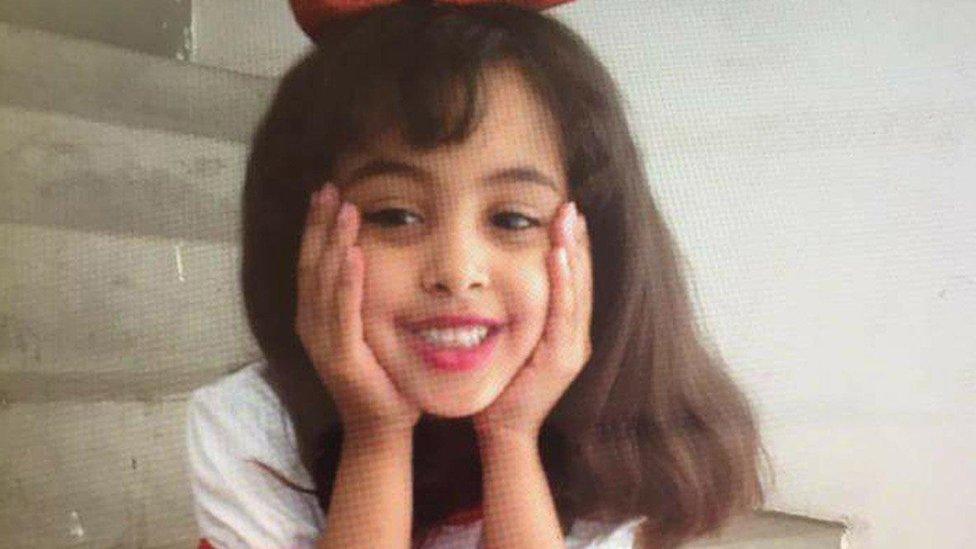
Reports say Nawar al-Awlaki was killed. Her father and brother were killed by US drone strikes
US special forces operatives carried out a raid in central Yemen on Saturday, targeting the house of a suspected leader of al-Qaeda in the Arabian Peninsula (AQAP).
The White House maintains it was a "well thought-out" operation. Military officials said they seized "valuable and actionable intelligence".
But the raid did not go entirely to plan.
In the first operation under President Donald Trump, one Navy commando died, and there are likely civilian casualties - including children.
Here's what we know and what's been reported.
'A moonless night'
The US special forces members targeted the compound of a suspected senior AQAP leader in the mountainous Yakla region of Bayda province - the focal point of recent US drone strikes in Yemen.
The clandestine mission - the first authorised by Donald Trump - was intended to gather information to prevent future terrorist attacks, Pentagon spokesman Capt Jeff Davis said, external.
The plan was first drawn up in November 2016, but not approved until January - under new leadership.
"The conclusion was at that time to hold it for what they called a 'moonless night,' which by calendar wouldn't occur until then-President-elect Trump was President Trump," White House press secretary Spicer said.
President Trump was briefed on the mission five days after becoming president - and authorised it on 26 January.
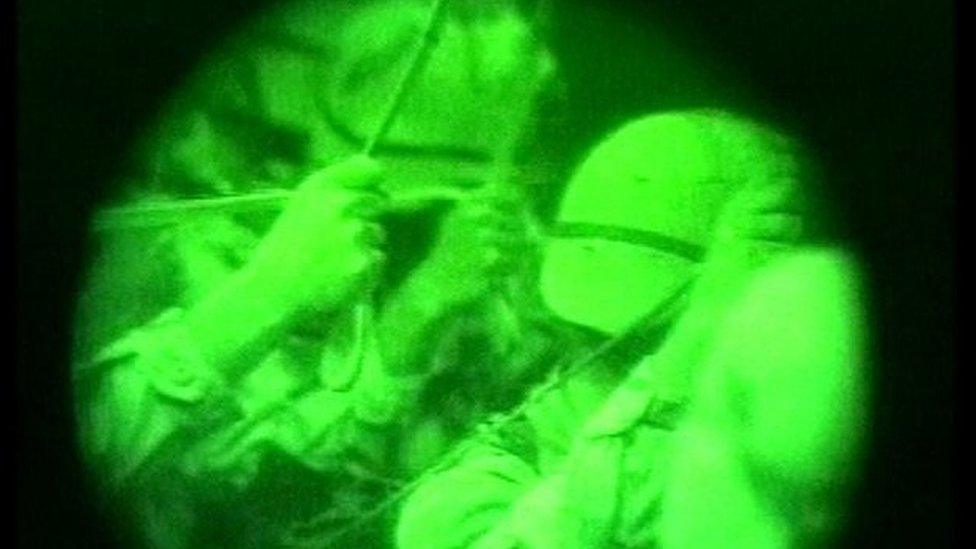
Elite special forces unit Seal Team 6 was involved in the raid
After being dropped by aircraft near the compound, the troops engaged in a fierce firefight with AQAP militants inside, according to US officials.
Capt Davis said the soldiers came under fire "from all sides", including from houses and other buildings - and from women, apparently trained to fight from prepared positions, he said.
Chief Petty Officer William Owens, a member of the elite US Navy special forces unit Seal Team 6, was killed, external in the battle, which is reported to have lasted about 50 minutes.
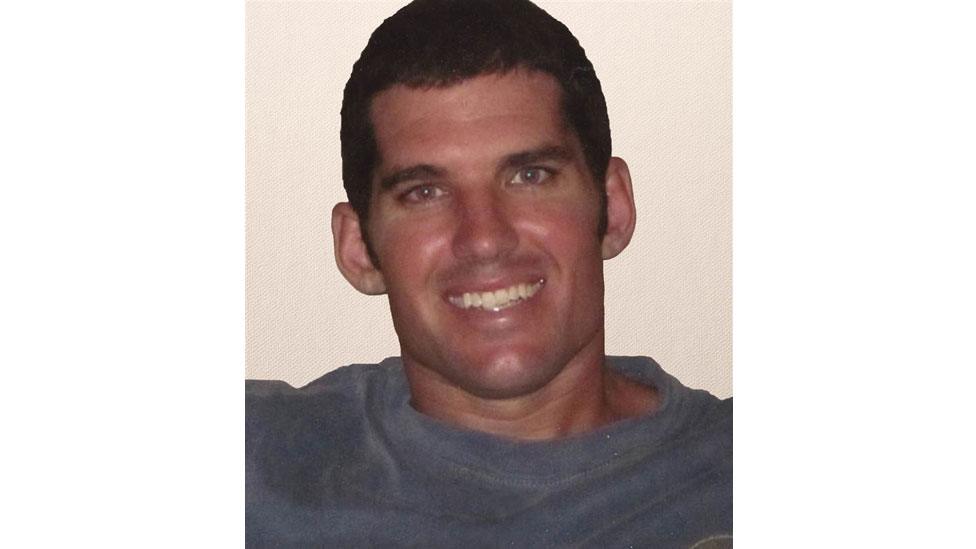
Navy Seal William Owens, 36, died in the raid
Three other service members were injured when an Osprey MV-22 tilt-rotor aircraft made a hard landing during the operation, Capt Davis said. It was so badly damaged that it was deliberately destroyed by a US air strike.
The fighting was so fierce that air support was called in, allowing the US troops to be extracted, Capt Davis said.
However, it now seems that aerial gunfire may have killed civilians - possibly including children.
'Civilian non-combatants'
AQAP said one of its leaders, Abdul Rauf al-Dhahab, was killed, along with about 30 "villagers" whom it did not identify.
Medics at the scene told Reuters news agency that 10 women and children were killed, while a Yemeni official told the New York Times that at least eight women and seven children aged between three and 13 years old had died.
The human rights group Reprieve cited local reports, external saying that a heavily pregnant mother was shot during the raid and subsequently gave birth to an injured baby boy, who died on Tuesday.
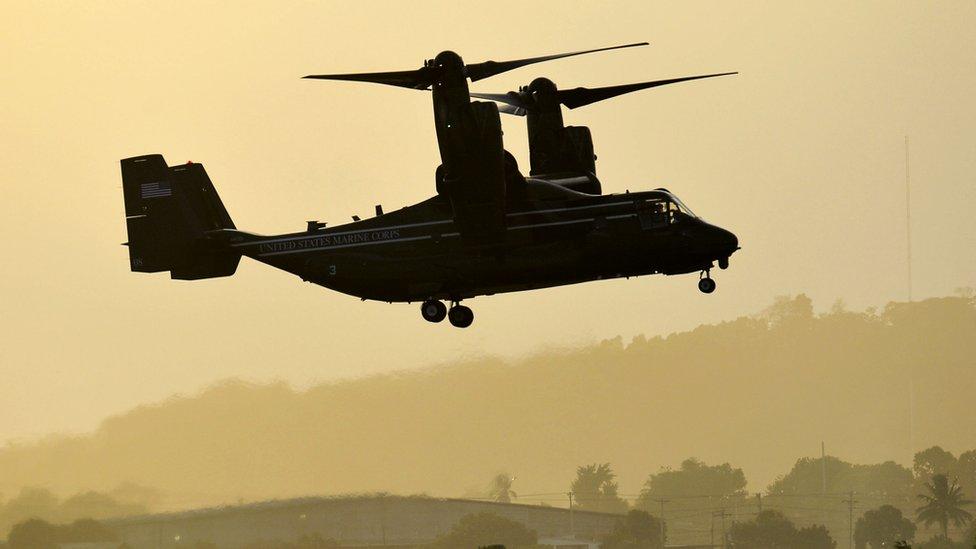
A US V-22 Osprey was damaged during landing and destroyed by an air strike
Another child allegedly killed was Nawar al-Awlaki, the eight-year-old daughter of the AQAP ideologue Anwar al-Awlaki, according to her grandfather.
Nasser al-Awlaki told NBC News, external that Nawar, also known as Nora, had been visiting her mother when the raid took place.
"They were sitting in the house, and a bullet struck her in her neck at [02:30]. Other children in the same house were killed," the former agriculture minister said, adding that Nawar died two hours after being shot.
"[The US special forces] entered another house and killed everybody in it, including all the women. They burned the house. There is an assumption there was a woman [in the house] from Saudi Arabia who was with al-Qaeda. All we know is that she was a children's teacher."
Images circulated on social media and by local media outlets purported to show her body, alongside those of other children allegedly killed.
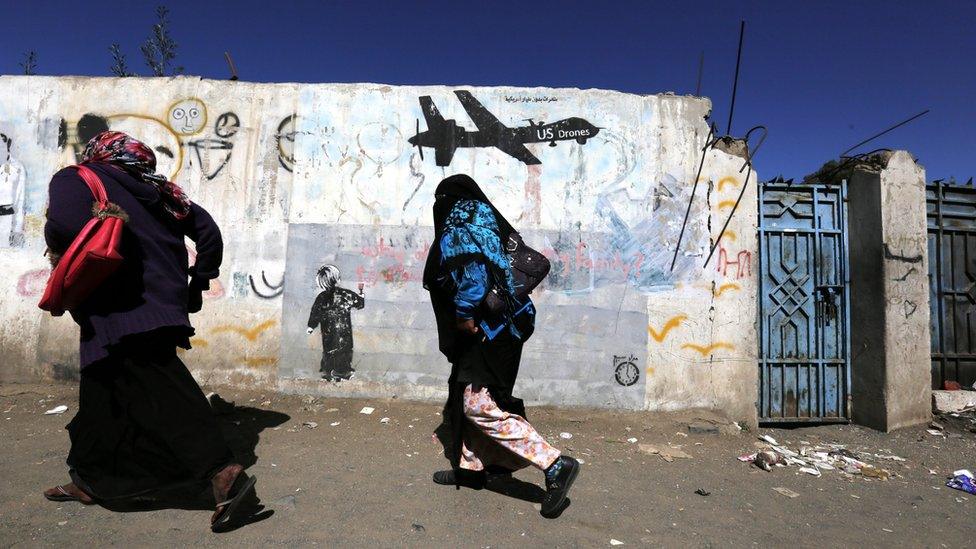
Hundreds of people reportedly died in drone strikes in Yemen during Barack Obama's presidency
On Monday, Capt Davis told reporters, external that the Pentagon was "assessing" the claims of civilian casualties.
He highlighted the existence of "a lot of female combatants," and urged the public to "take reports of female casualties with a grain of salt".
But on Wednesday, the US military issued a statement, external saying an investigations team had "concluded regrettably that civilian non-combatants were likely killed in the midst of a firefight" during the raid.
It acknowledged that the casualties "may include children", but did not specify whether Nawar was among them.
The following day, Capt Davis told reporters that it appeared people had been "caught up in aerial gunfire that was called in to assist US forces".
'A successful operation'
The loss of life on both sides has led to some criticism of the raid in the press.
President Trump flew on an unannounced trip to receive Mr Owens's body on Wednesday - the first solider killed in action under his authority.
"He died in defence of our nation. He gave his life in defence of our people. Our debt to him and our debt to his family is eternal and everlasting," the President said, external.
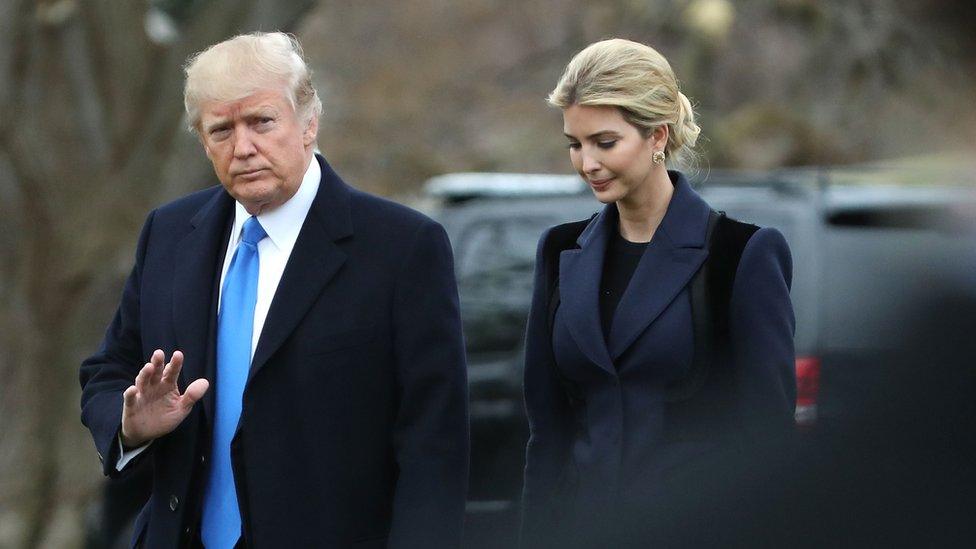
Mr Trump went to pay his respects to the first solider killed in action during his term
A report in the New York Times alleged that the mission had been compromised early on - something the commandos knew from intercepted communications, the paper said.
"They kind of knew they were screwed from the beginning," it quoted a former Seal Team 6 official, external.
But the military dispute this, saying there is no evidence the mission was compromised.
Former White house officials, external, disputed the notion that the raid had ever been considered by Barack Obama - "because he thought it represented an expansion of the war in Yemen" and refused to make such a decision, according to reports.
But White House press secretary Sean Spicer maintained that the raid was a "very well thought-out and executed effort."
White House spokesman Sean Spicer defends Yemen raid.
"It's hard to ever call something a complete success when you have a loss of life or people injured.
"But I think when you look at the totality of what was gained to prevent the future loss of life... it's a successful operation in all standards," he said.
- Published3 February 2017
